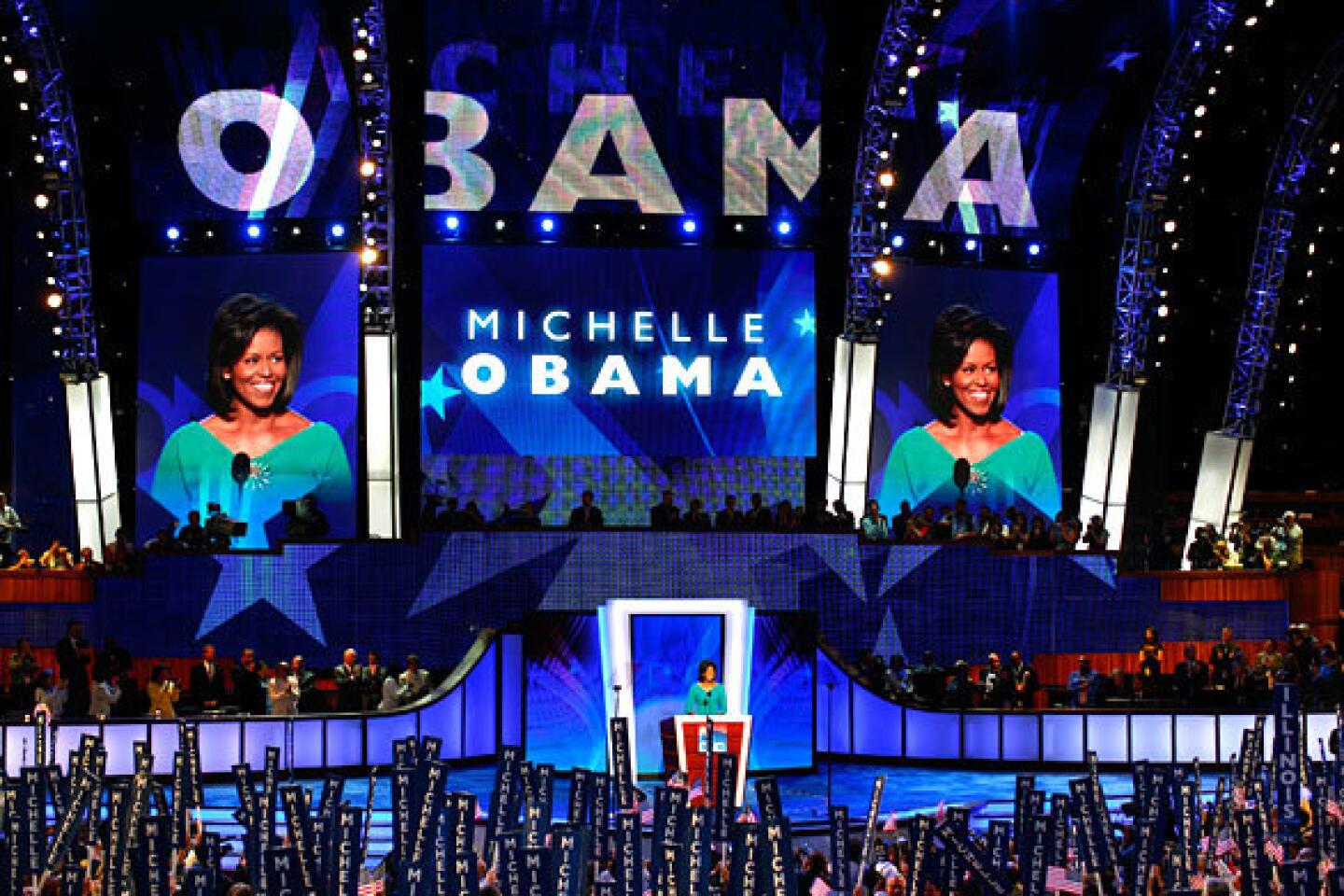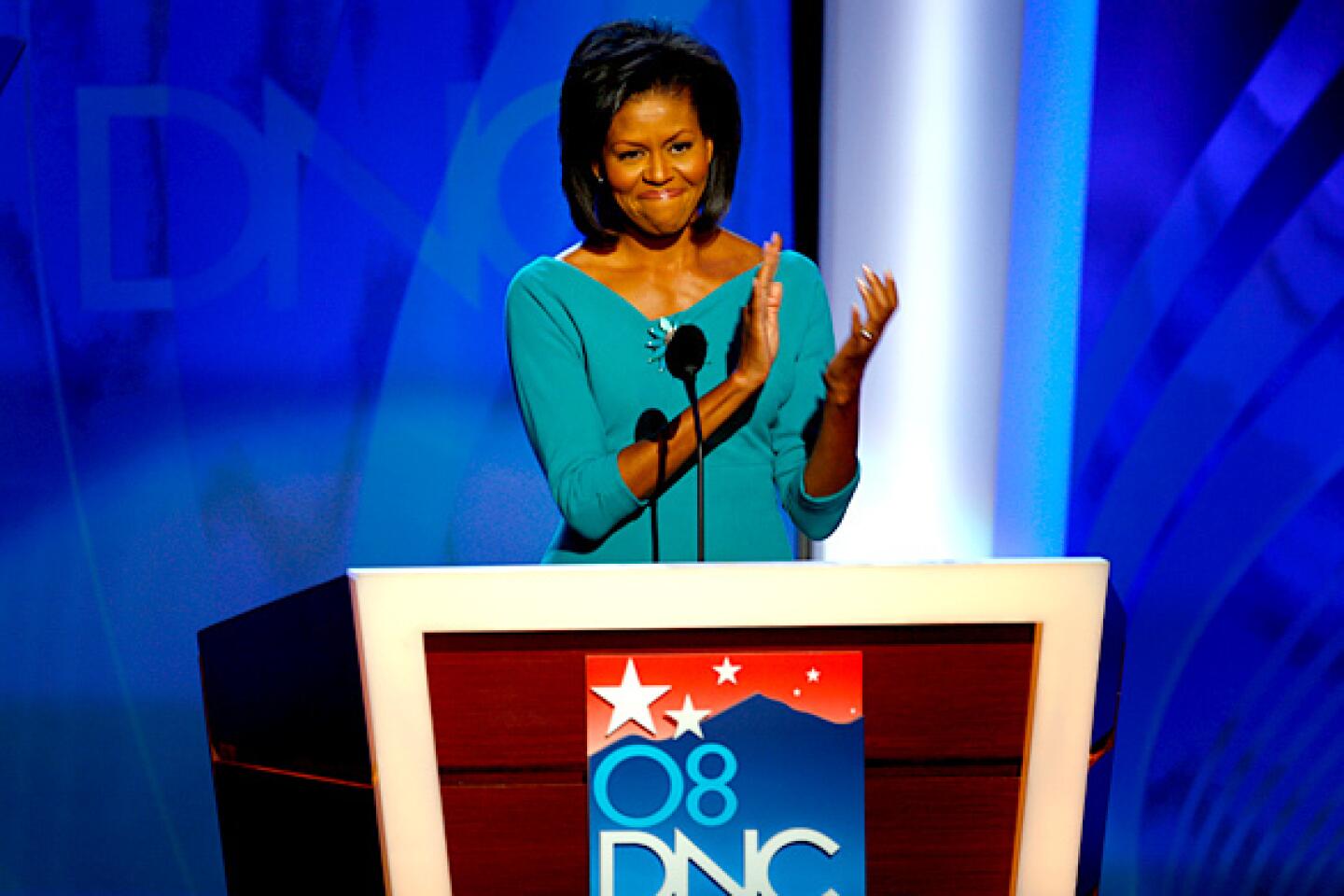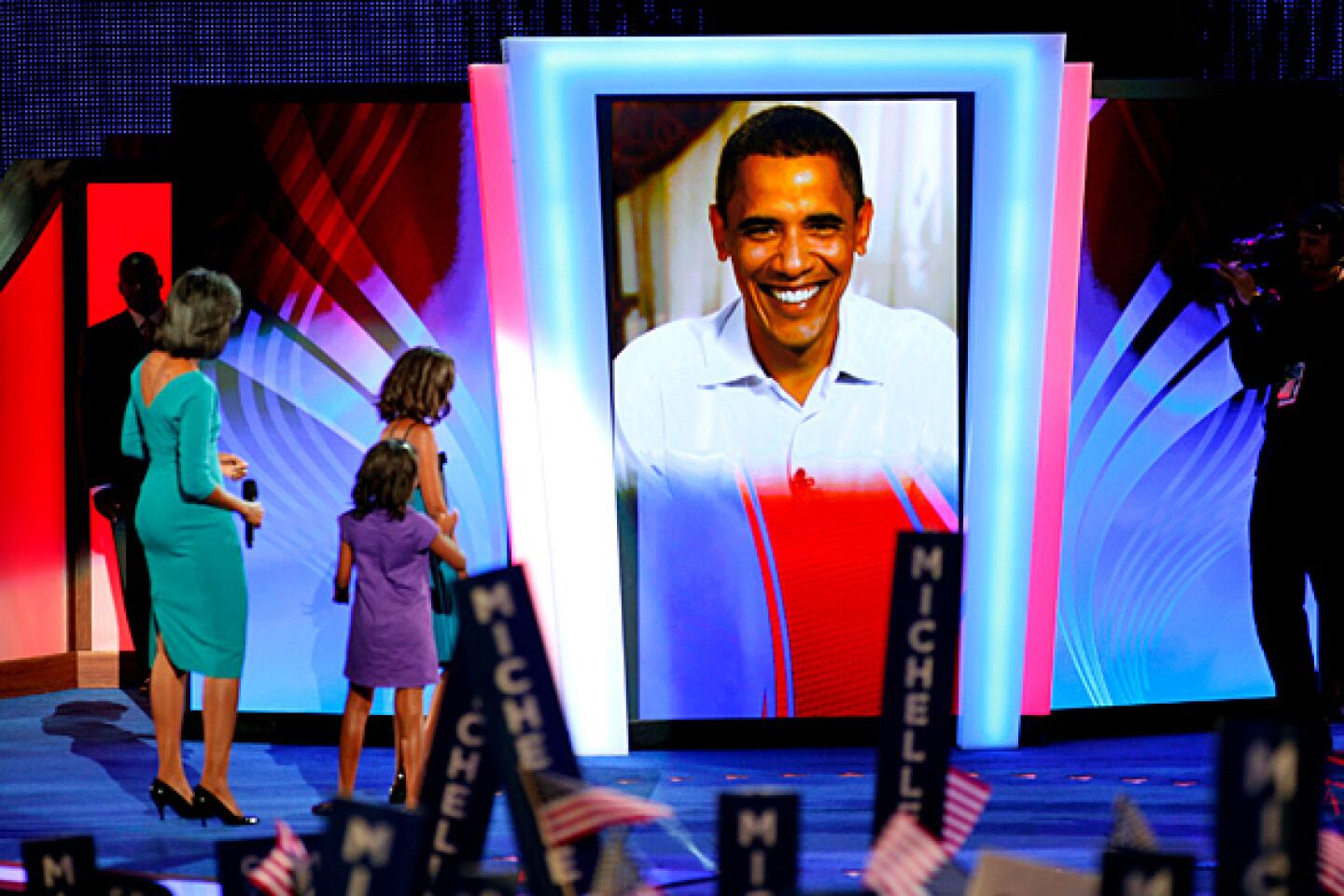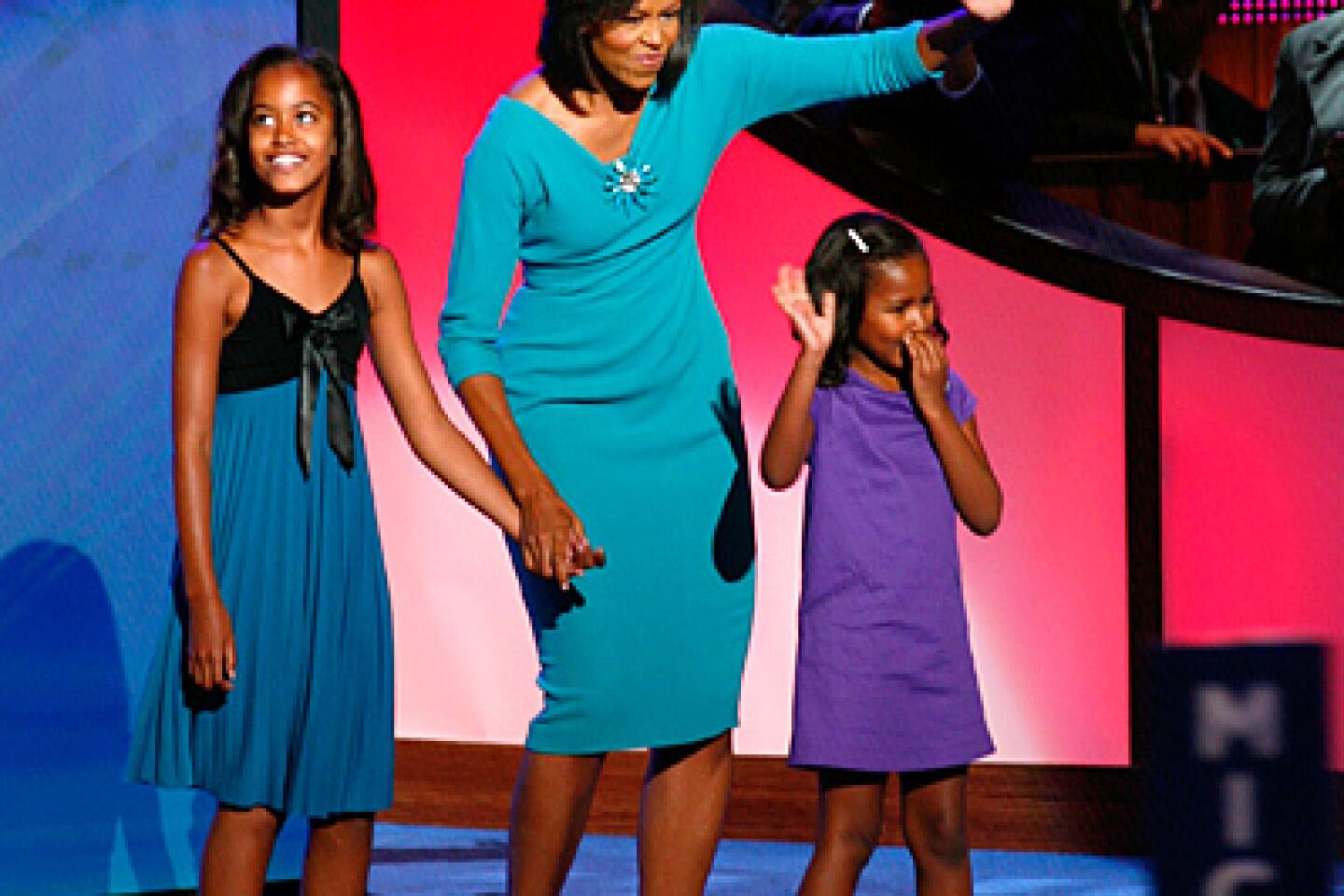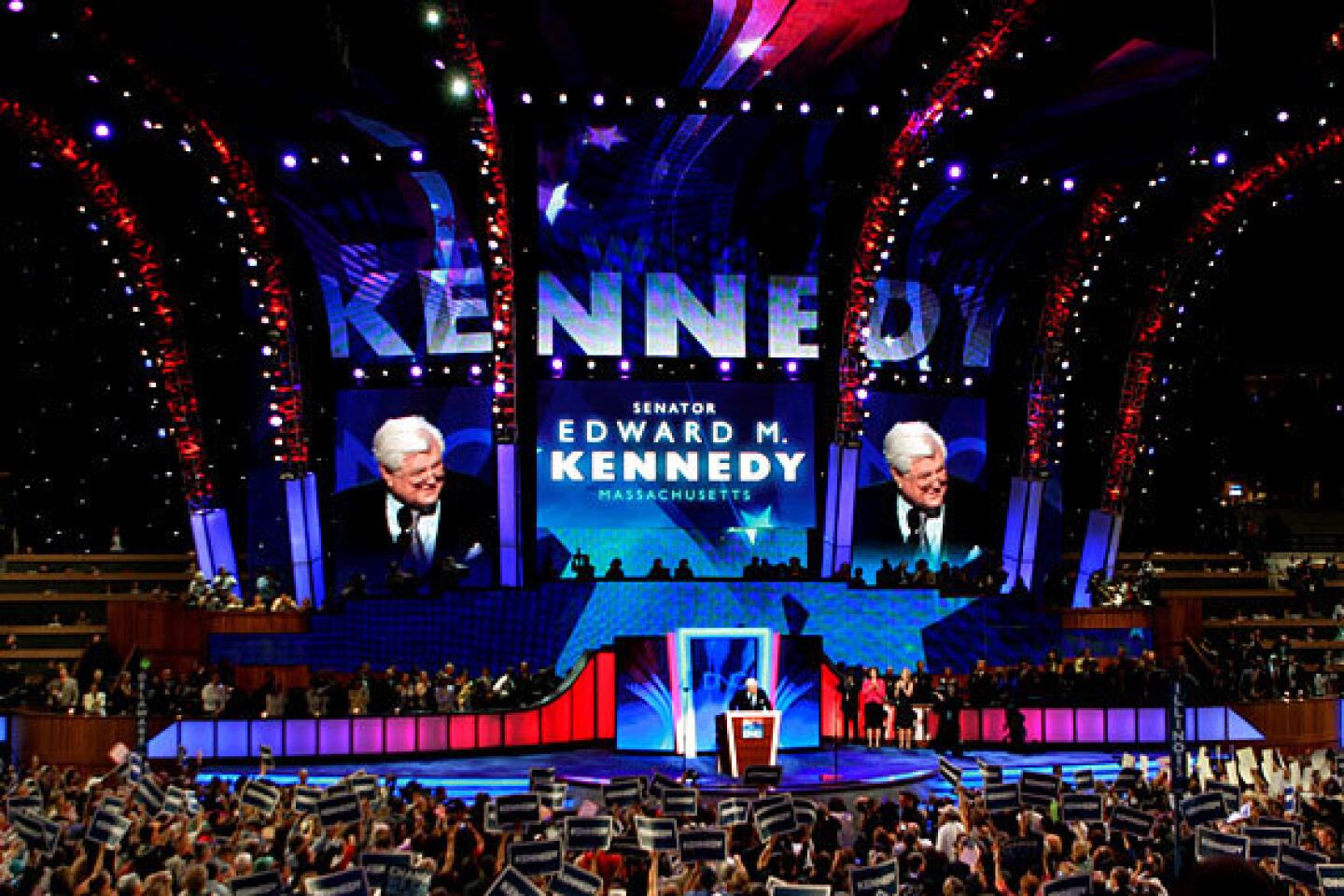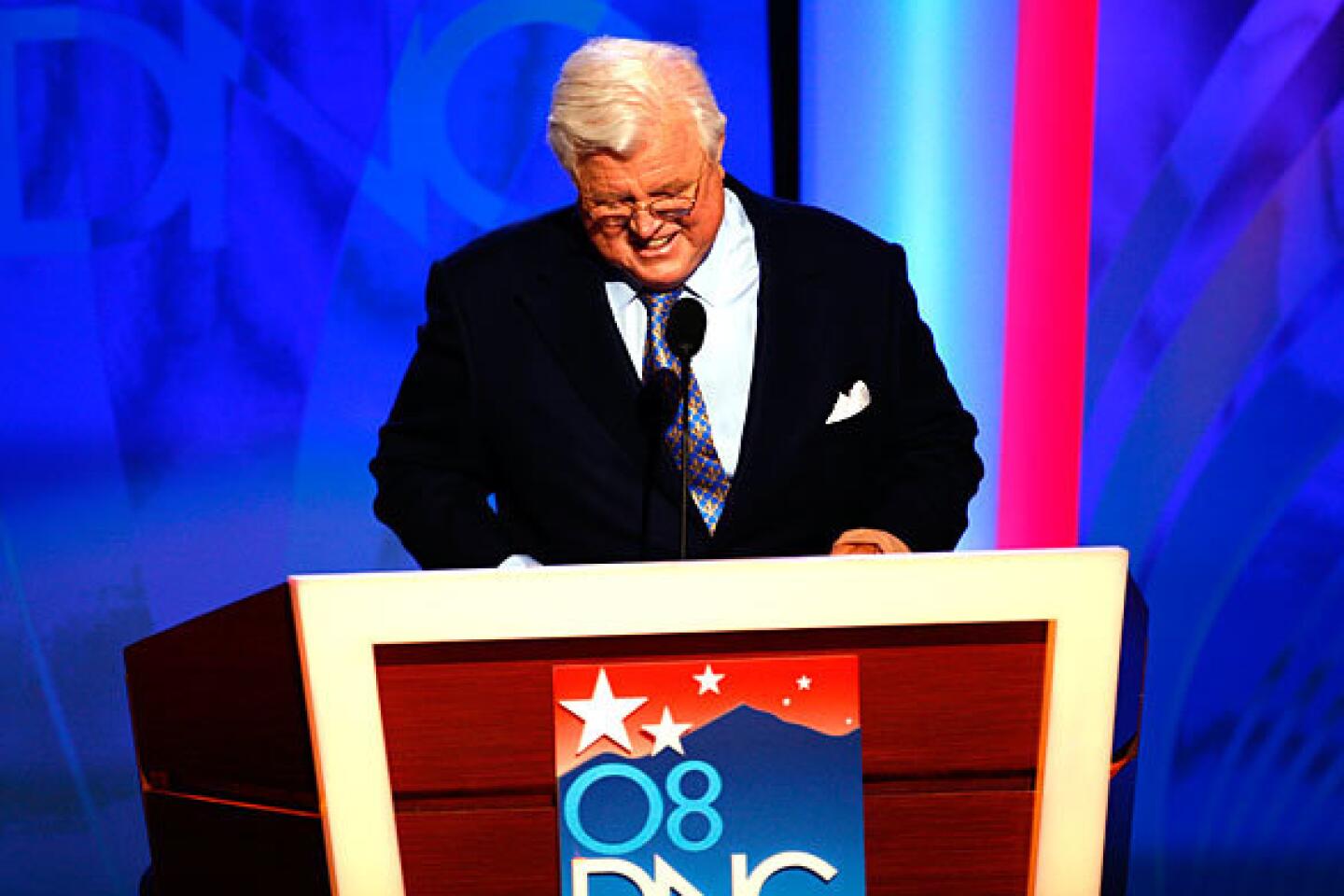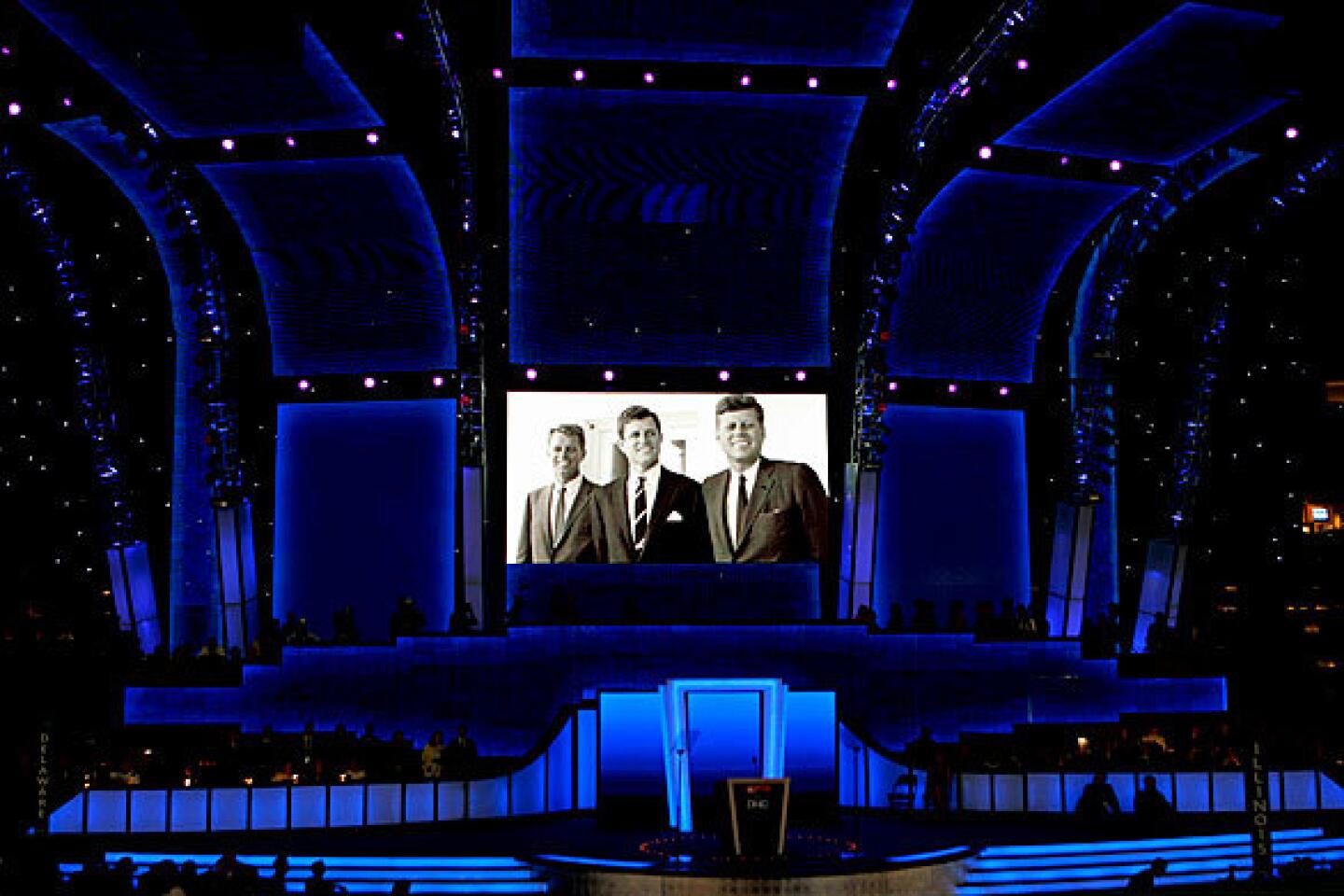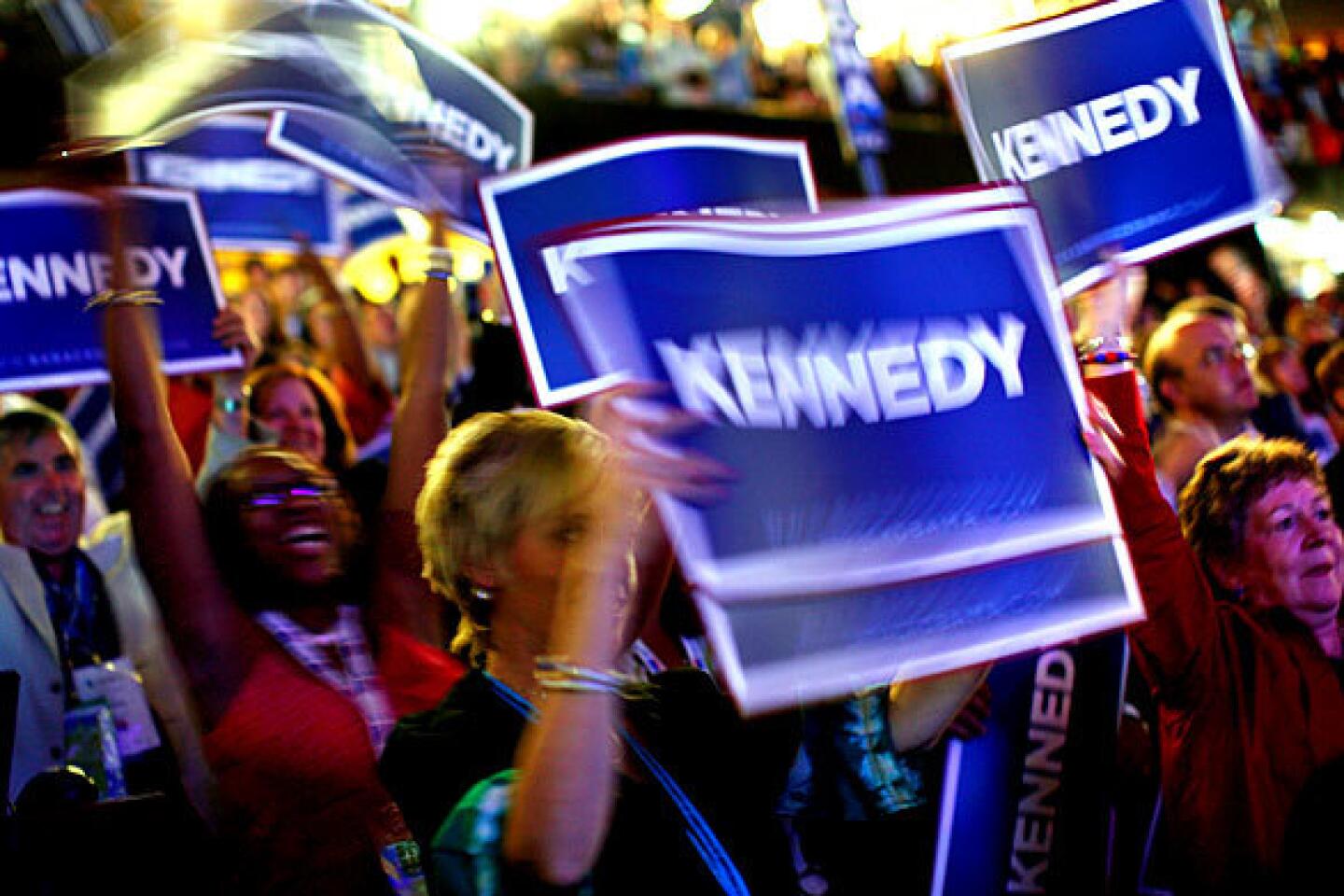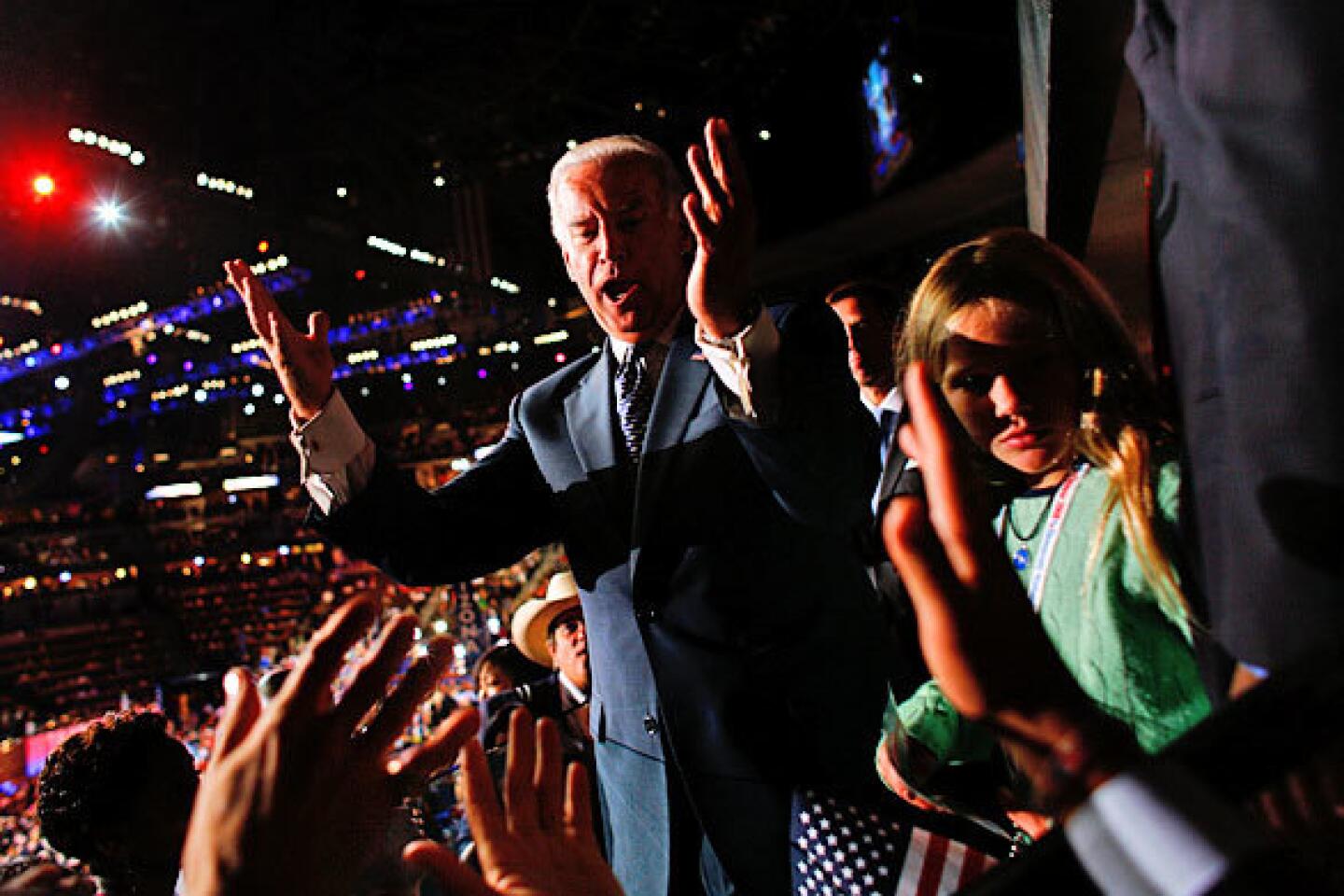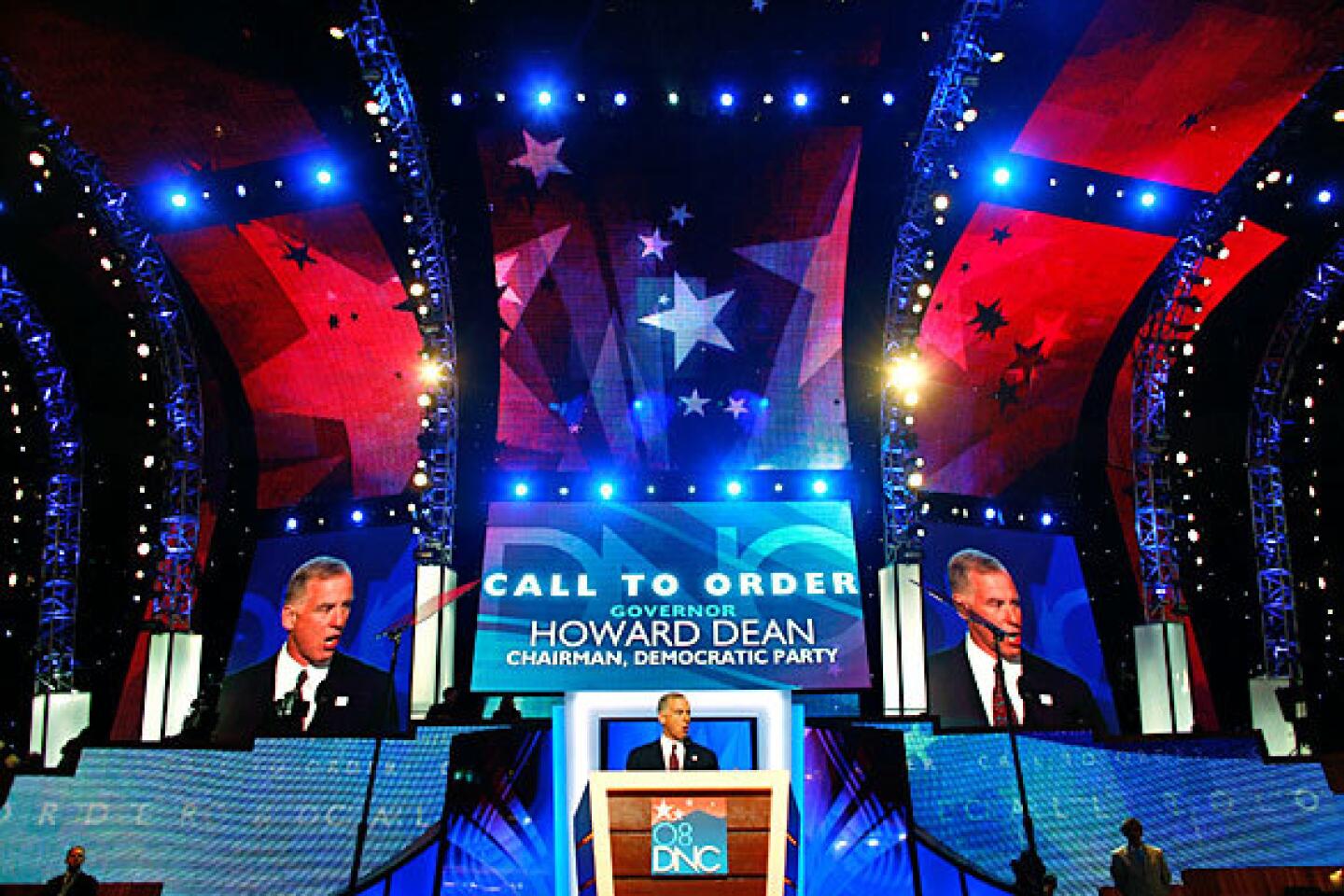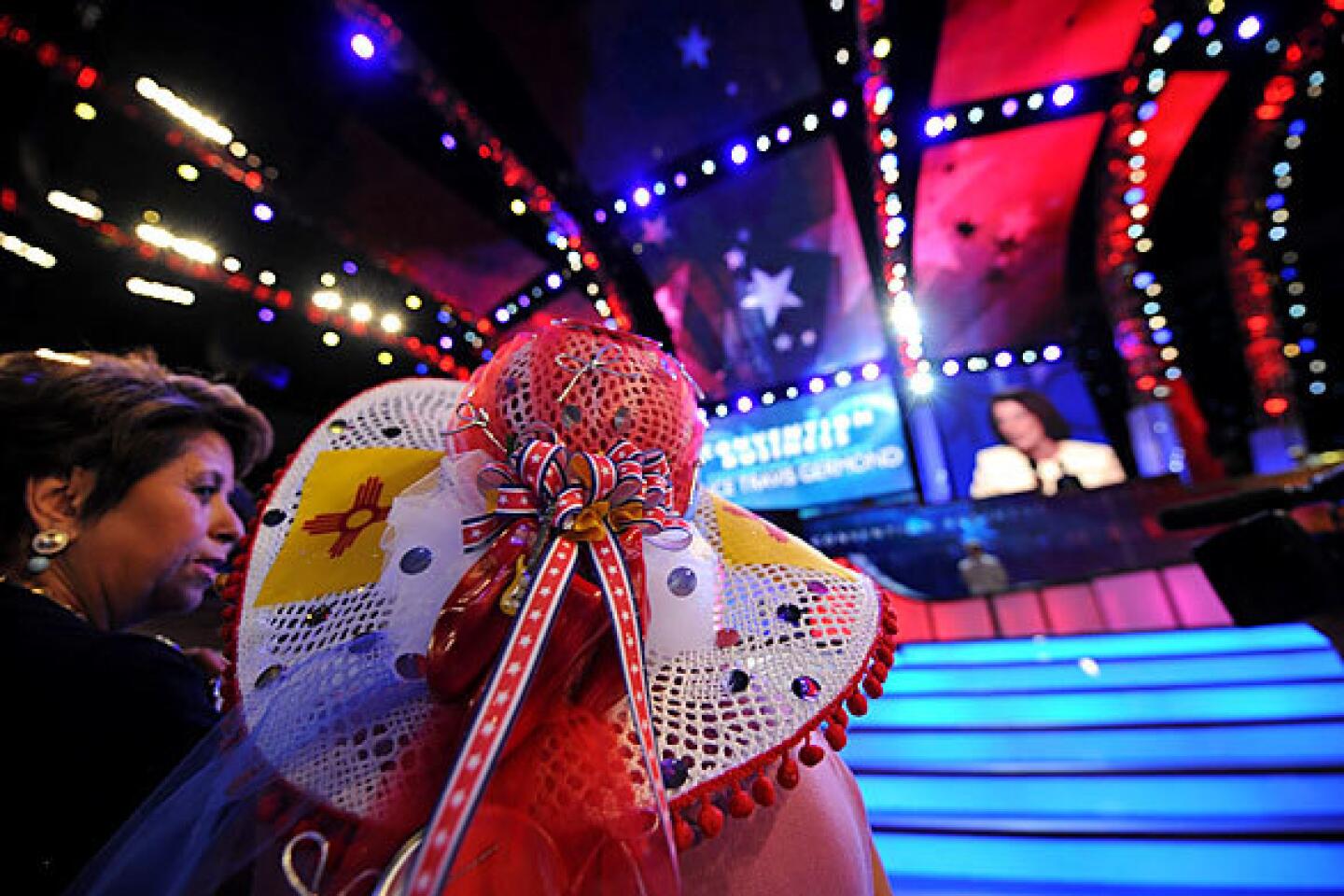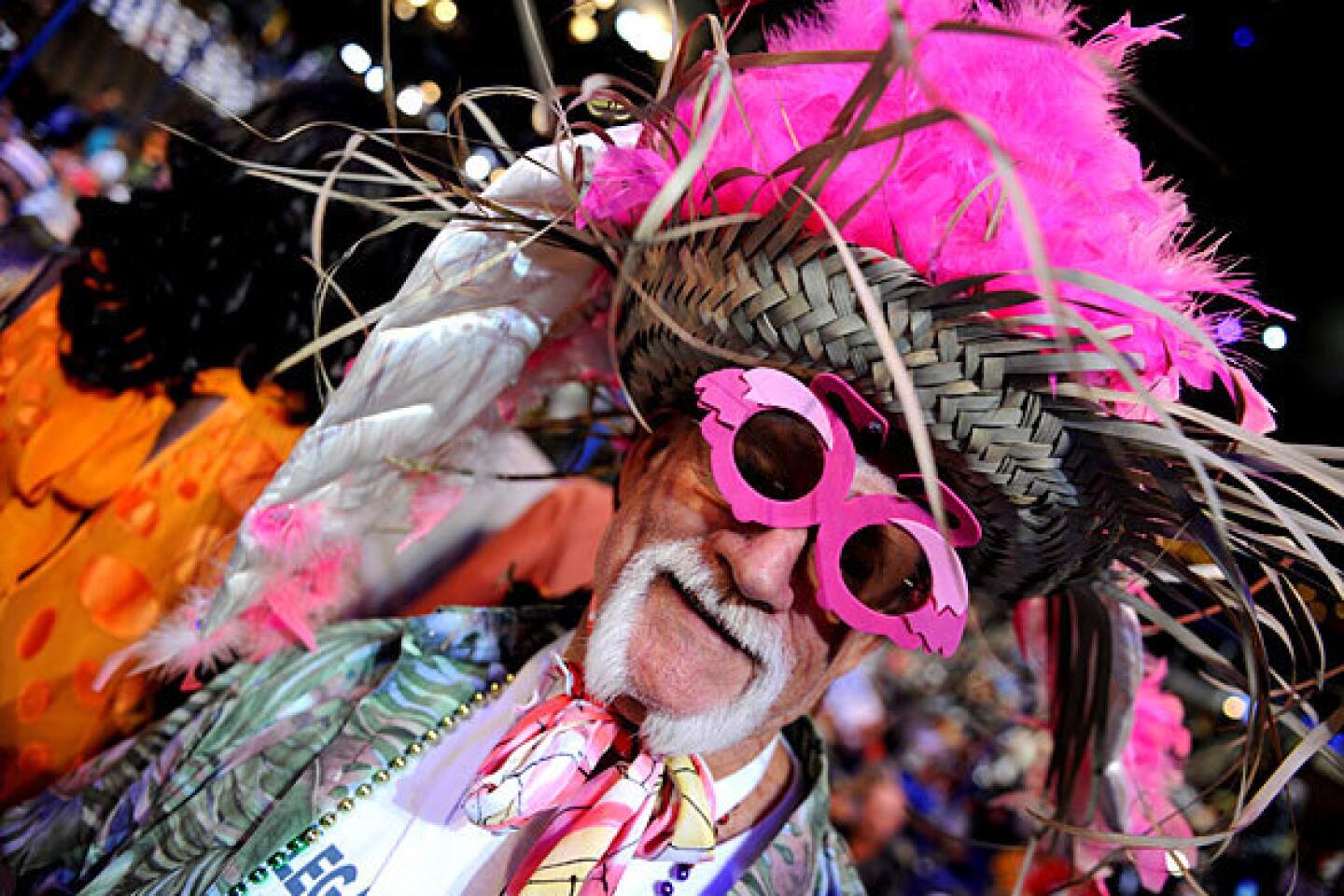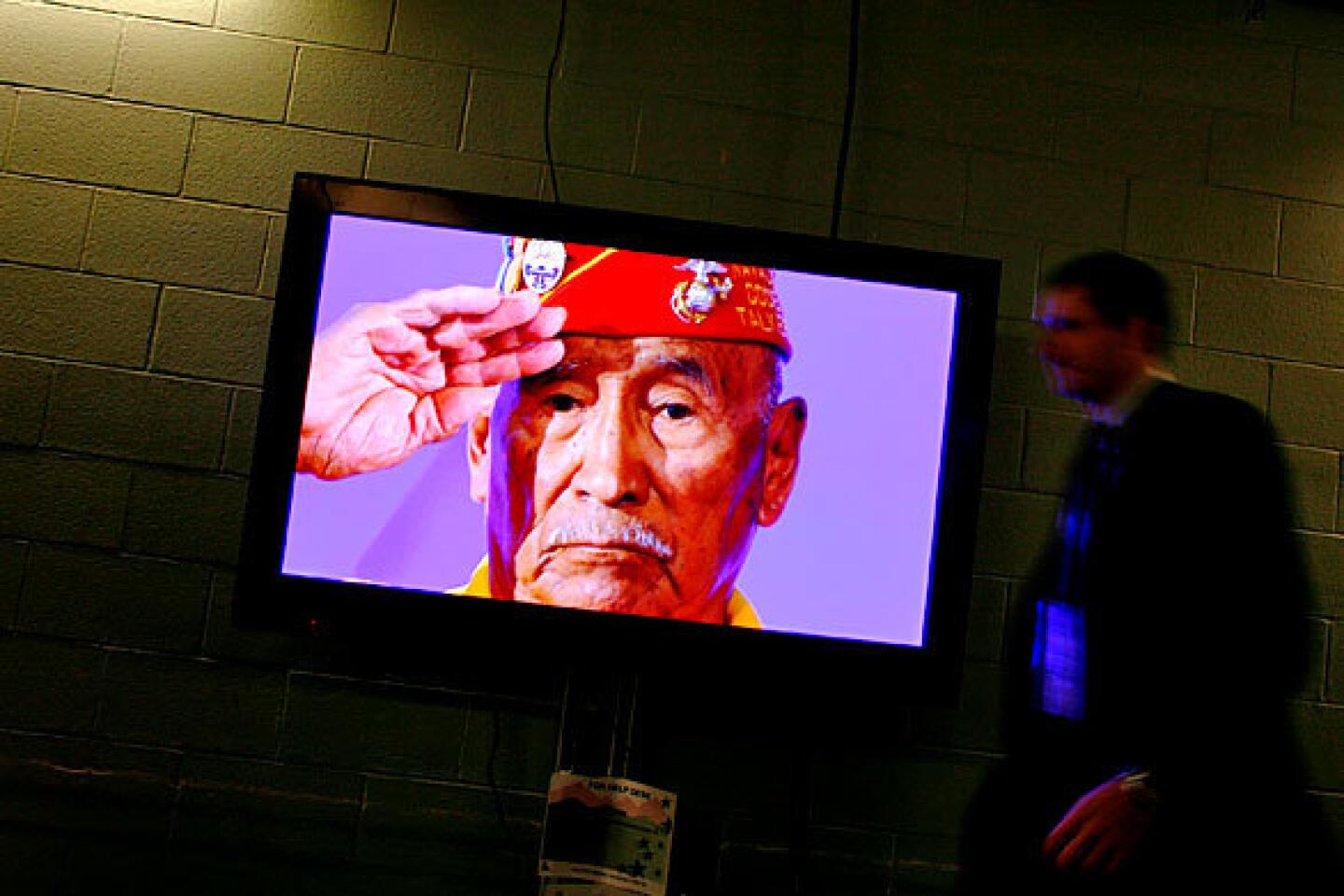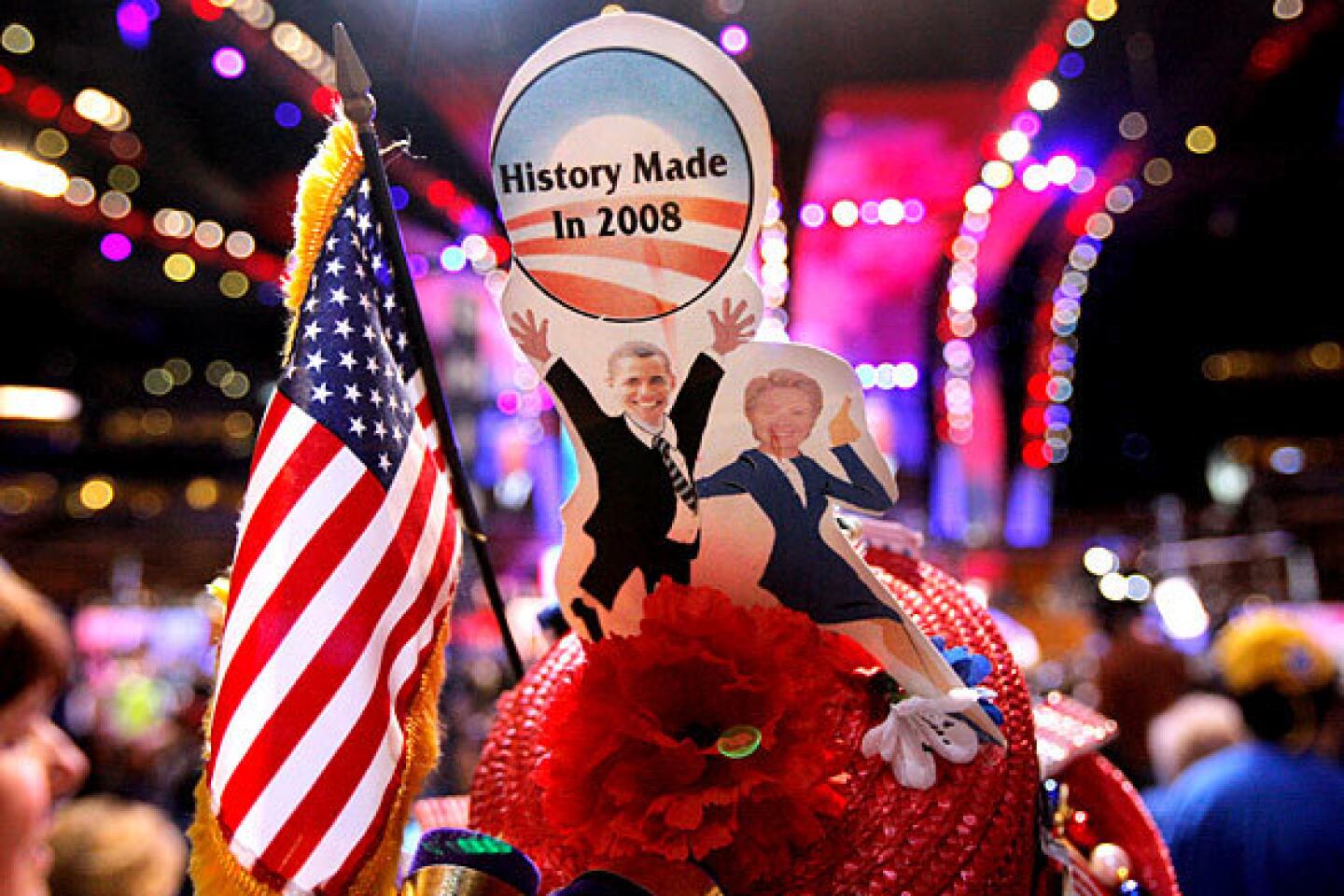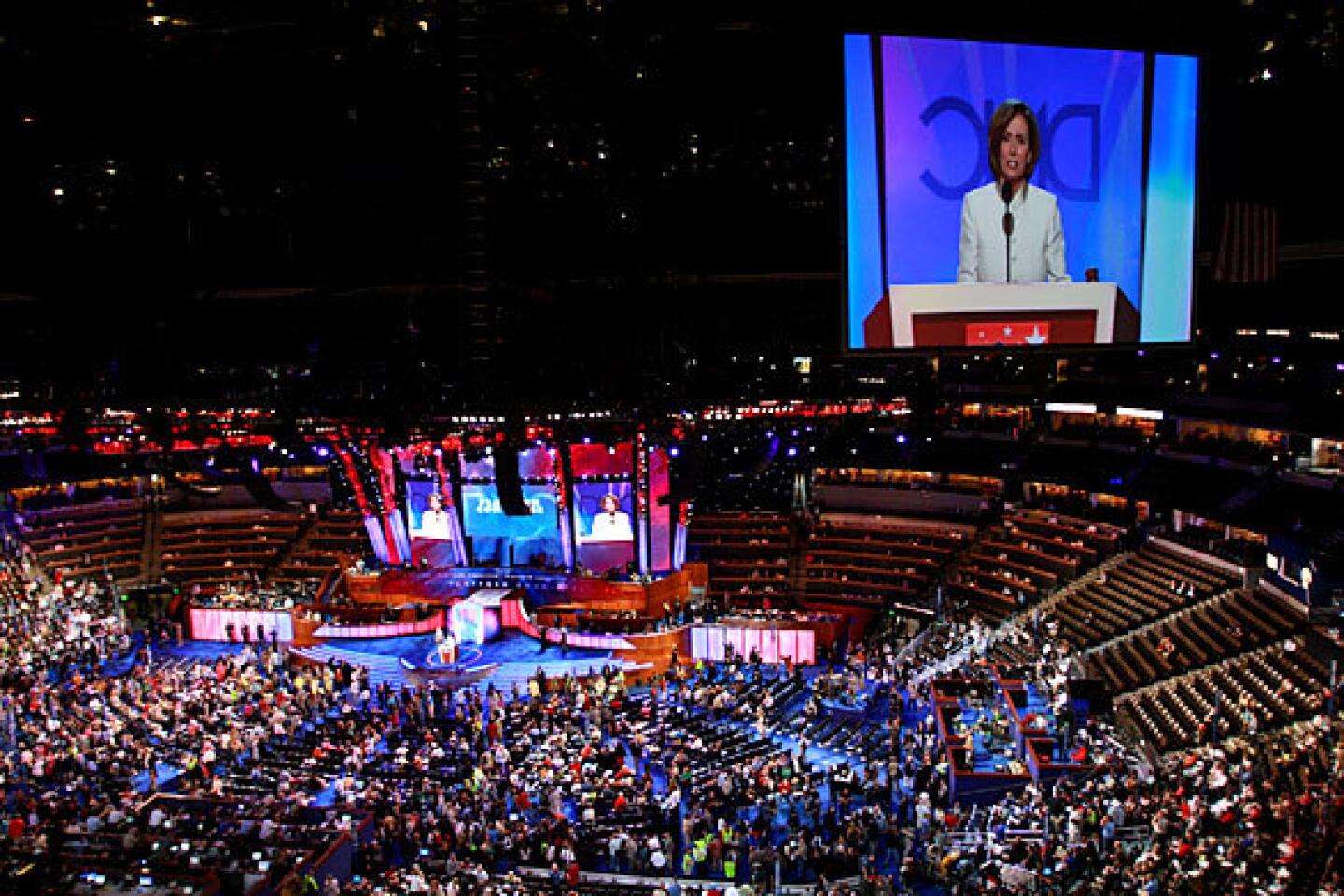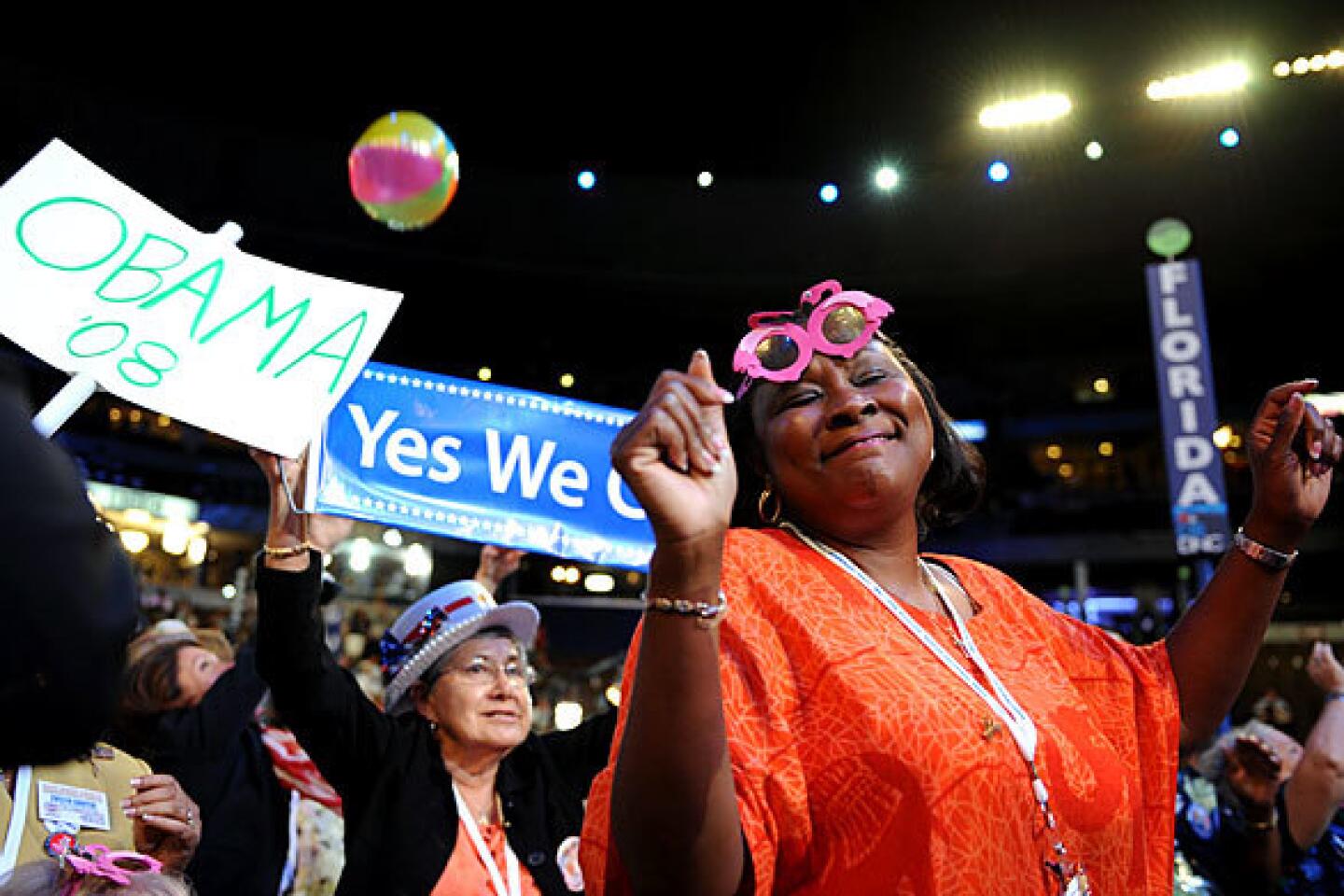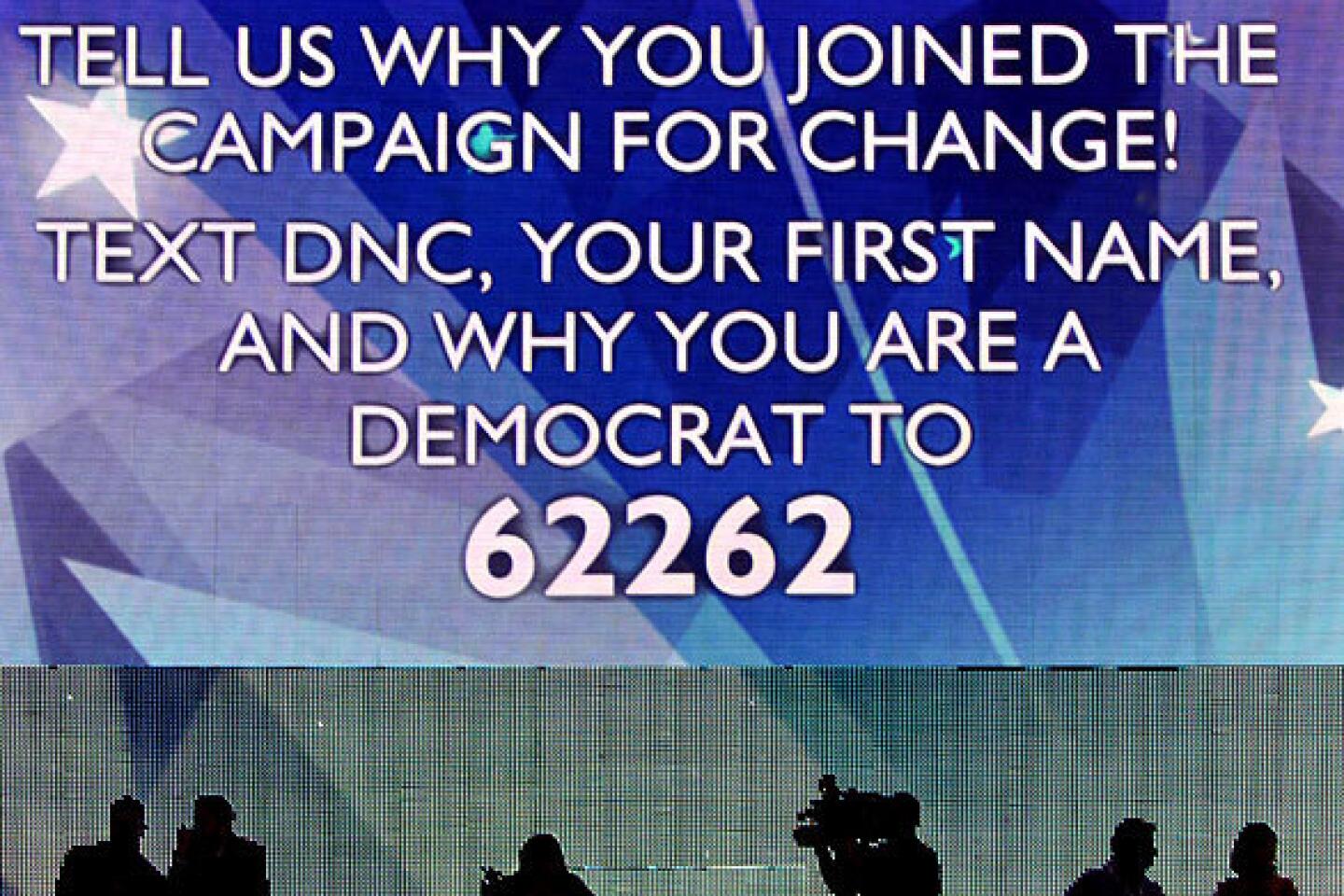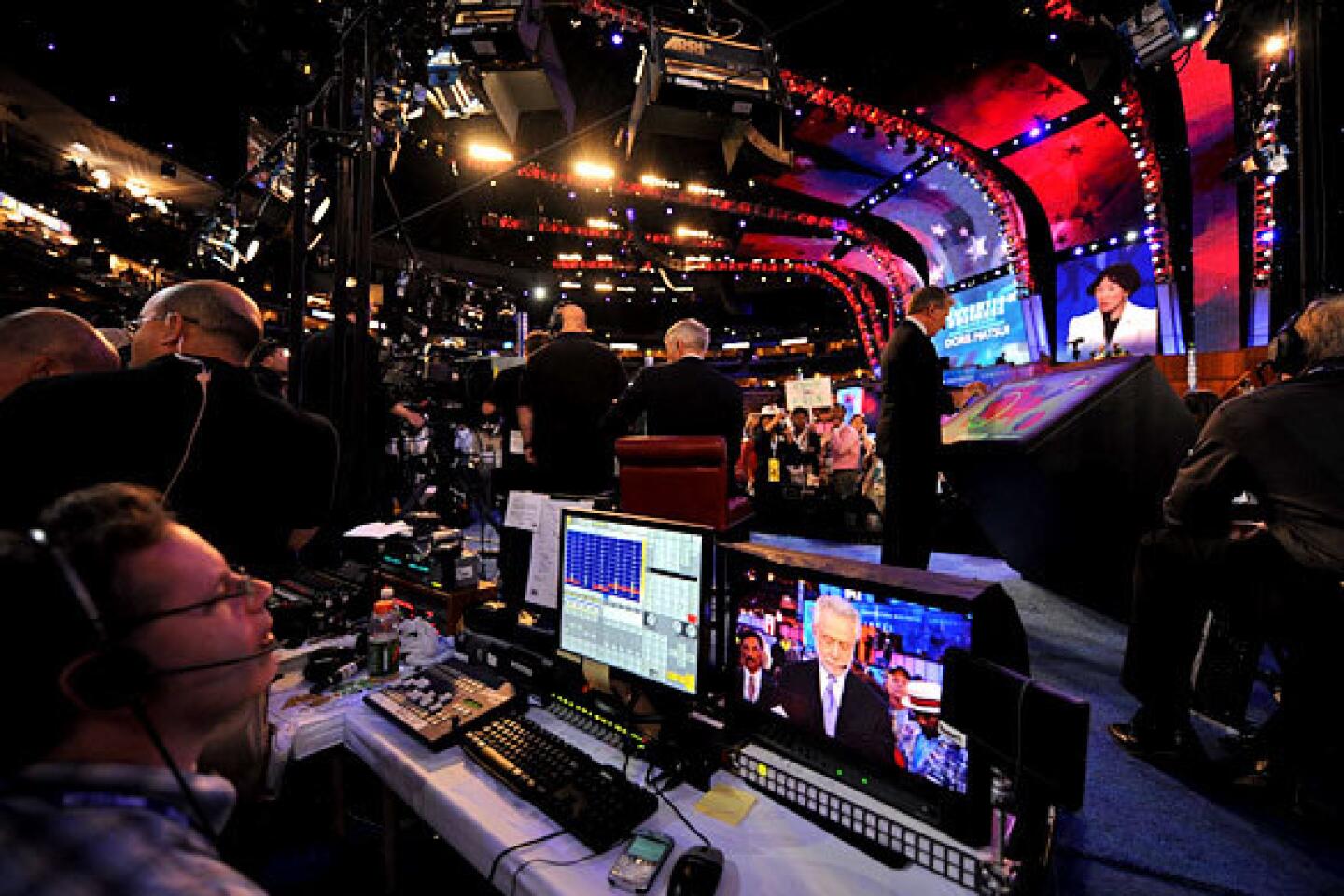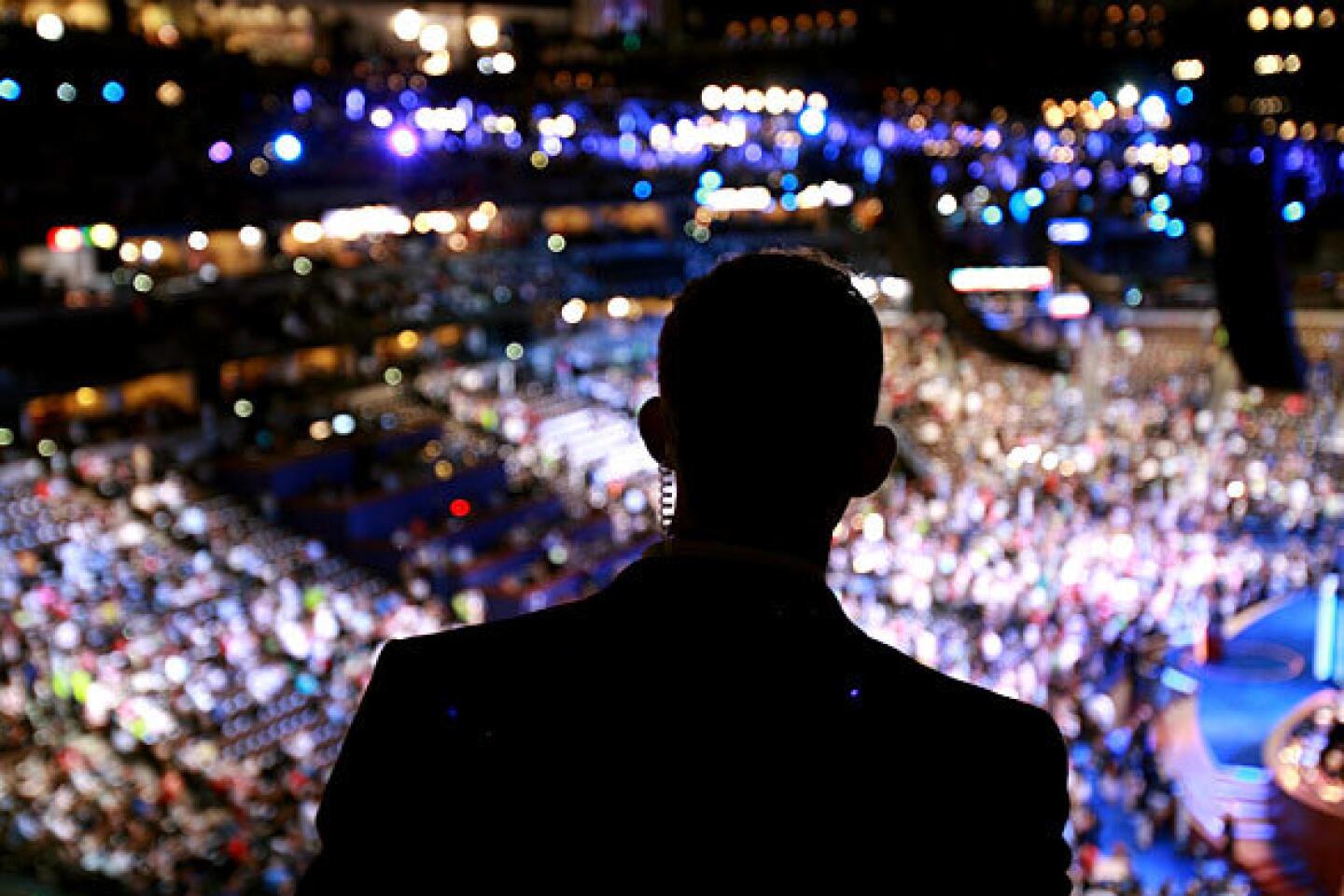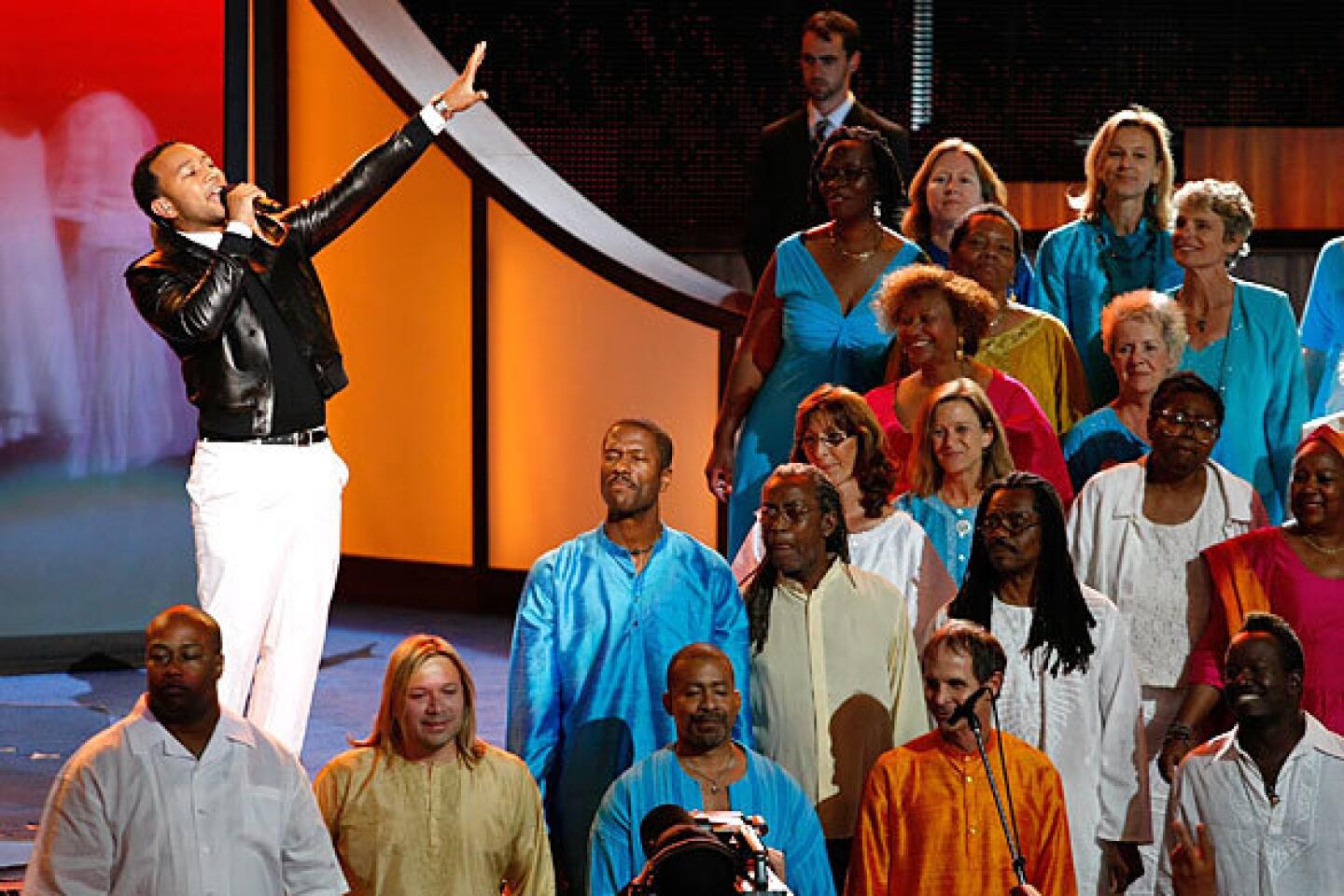Protesters at the Democratic convention take a low-key approach
- Share via
DENVER — A graying folk singer belted out protest songs in a downtown park as handfuls of black-clad demonstrators milled about. Activists stepped to a microphone to denounce oppression of Native Americans and the poor.
The only sign that the midday gathering Monday was anything other than a run-of-the-mill congregation of local leftists was the dozens of police in riot gear, staying under spruce trees to avoid the brutal sun.
“I don’t see it really getting any rowdier,” Shannon Frances, a veteran Denver activist, said as she waited for people to assemble for the day’s march.
After months of warnings about tens of thousands of dissidents descending on Denver, protests here have begun with a whimper, not a bang.
A warehouse that police converted into a razor-wire-rimmed holding facility for arrestees during the convention sits largely empty; 12 people had been arrested for demonstration-related activity early Monday evening. Dozens more were detained after a clash just before Michelle Obama’s speech later that night.
Dozens of new rifles the Denver Police Department bought to fire nonlethal ordnance at unruly protesters remain unused. Marches have been so small the city is reopening streets it had cordoned off.
“Everybody’s happy with how it’s going so far,” said Bryan Thiel, a spokesman for the Joint Information Center that Colorado authorities have assembled to track activities at the Democratic National Convention.
Demonstrators, who braced for confrontations with what they feared would be trigger-happy police, are also happy.
“Building an overflow detention center gave us a sign they were going to make mass arrests,” said Glenn Spagnuolo, a spokesman for Recreate 68, the umbrella group coordinating many of the protest activities. “We’re going to stay nonviolent and I hope that relieves them.”
Ever since demonstrators jammed the streets of Seattle and shut down meetings of the World Trade Organization in 1999, cities have used controversial tactics to keep protesters from disrupting political conventions.
During the Democratic National Convention in 2000, Los Angeles police used pepper spray and nonlethal bullets to break up a 15,000-person concert outside Staples Center after a small group of anarchists began to pelt officers with debris. At the Republican National Convention in 2004, New York police arrested hundreds of activists who were later released when judges dismissed the charges against them. Both cities paid out millions of dollars to settle lawsuits.
Denver’s looming protests caused much anxiety. Authorities said they wanted to respect the 1st Amendment rights of demonstrators but were wary of the provocative name of the protest coordinating committee -- the name Recreate 68 partly refers to bloody protests at 1968’s Democratic National Convention in Chicago.
Activists complained that the city’s designated protest area -- a cordoned-off part of the parking lot at the Pepsi Center, far from where delegates enter -- was designed to stifle dissent.
Sunday was the first test: an antiwar march that was supposed to draw up to 25,000 people. About 1,000 showed and marched peacefully to the convention site, where police allowed an impromptu sit-in.
On Monday, about 300 people eventually gathered at the park in front of the state Capitol and marched through busy downtown streets to the federal courthouse, where they held a rally against torture and in support of “political prisoners” such as Native American activist Leonard Peltier.
Dozens of police in riot gear followed the demonstrators, warning them to stay on the sidewalks and not block traffic. There were taunting chants directed at the officers -- “Hey cops, what do you say, how many people you gonna shoot today?” -- but the event was peaceful.
Activists say that events later in the week could become more intense and focused on civil disobedience such as blocking traffic or events.
“You’re going to see escalations on both sides,” Ward Churchill, a controversial former University of Colorado professor who was fired after he compared Sept. 11 victims to Nazis, said before the march Monday. “The convention hasn’t even started yet.” Indeed, on Monday night, protesters and police clashed during an impromptu march and about 90 people were arrested in downtown Denver.
But demonstrators acknowledge that there is reluctance to spoil the nomination of the first black major-party presidential candidate in history, a man who was once a community organizer.
Julie Piller, 42, of Lafayette, Colo., wore an orange jumpsuit and black hood during the march to symbolize victims of U.S. torture at Abu Ghraib prison in Iraq and at the U.S. military prison at Guantanamo Bay, Cuba. Underneath her costume she wore an Obama T-shirt.
“I’m protesting torture but I’m hoping Obama ends it for us,” she said, acknowledging that many local activists are being low-key. “If I was at the [Republican National Convention], I’d be all out.”
nicholas.riccardi
@latimes.com
More to Read
Sign up for Essential California
The most important California stories and recommendations in your inbox every morning.
You may occasionally receive promotional content from the Los Angeles Times.
